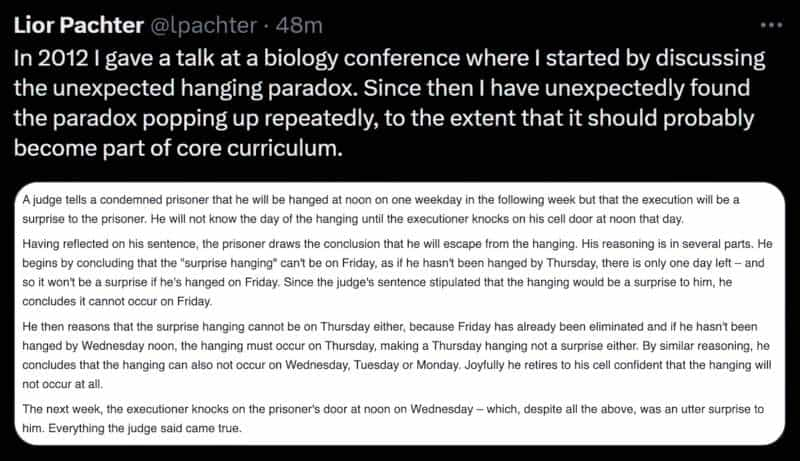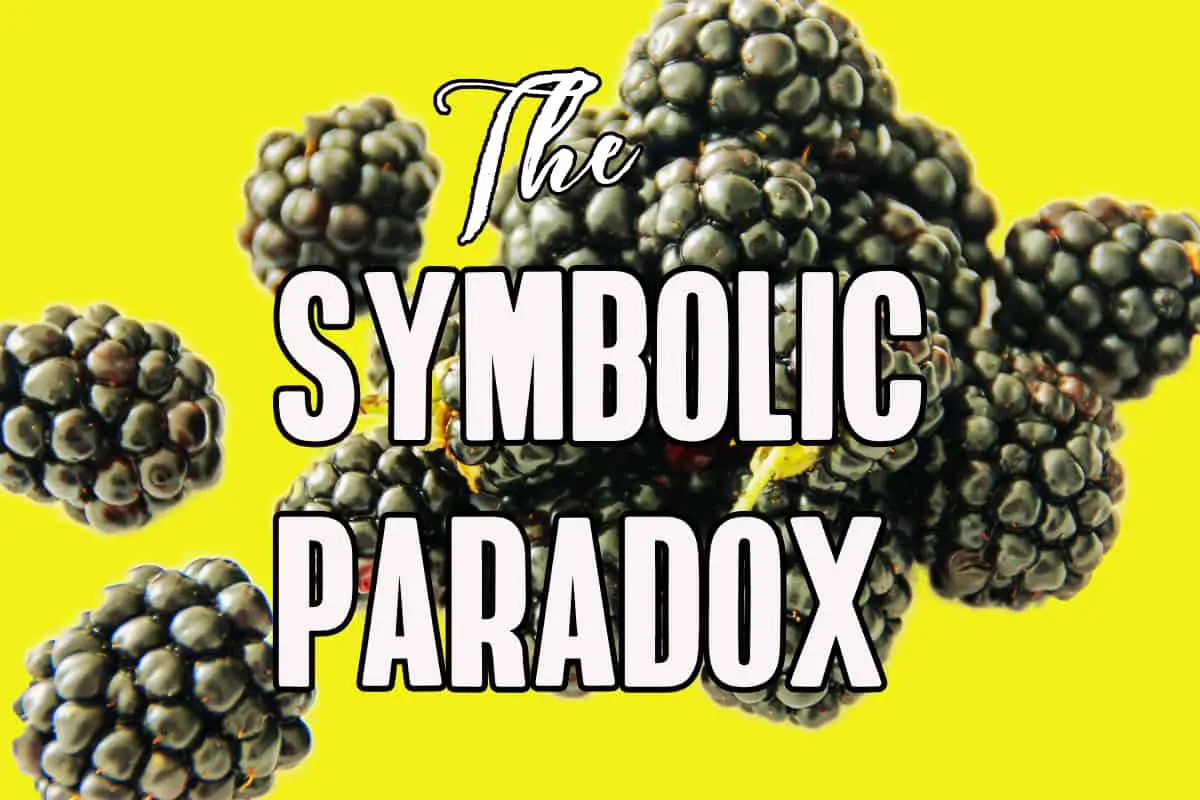By ‘symbolic paradox’ I mean the symbolic equivalent of a contranym. A contranym is a word with two directly opposite meanings. For example, ‘cleave’ means to separate or cut with a tool, but also means to be in close contact with. To separate and to join, at once.
An ‘idea’ can also work like a contronym. And when it is utilised in a work of fiction to convey a certain meaning or tone, then we can call it a symbol.
It’s interesting to see how these equivocal or paradoxical symbols come about. In some cases, we can even track the history (e.g. edelweiss).
The paradoxical symbol is an especially useful symbol for storytellers, because there is simply more meaning to mine, and also because the symbol web can never be black and white. Paradoxical symbolism is especially useful when you wish your narrator to avoid coming down on one side or the other, or when expressing ideas such as ‘life is complicated’, ‘sometimes no choice is the right one’.
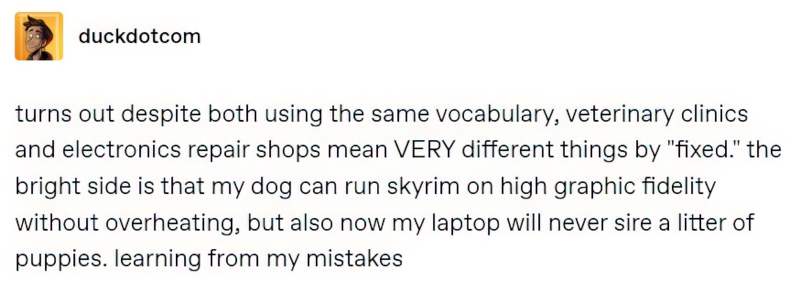
EXAMPLES OF THE SYMBOLIC PARADOX
ABYSS
The abyss symbolises depth but also inferiority. Different cultures have their own versions of abyss, depending on the geography that surrounds them:
- Celts: inside mountaint
- Ireland/Japan/South Seas: at the bottom of seas and lakes
- Mediterranean peoples: just beyond the horizon
- Aboriginal Australians: the Milky Way
The abyss is usually associated with the underworld, where dead people go. In many legends around the world, palaces or beings come out of an abyss of water. The death of King Arthur is one example: King Arthur is ordered to throw his sword into the lake. After he dies, a hand rises up, breaking the surface of the water and catches the sword.
BLACKBERRIES
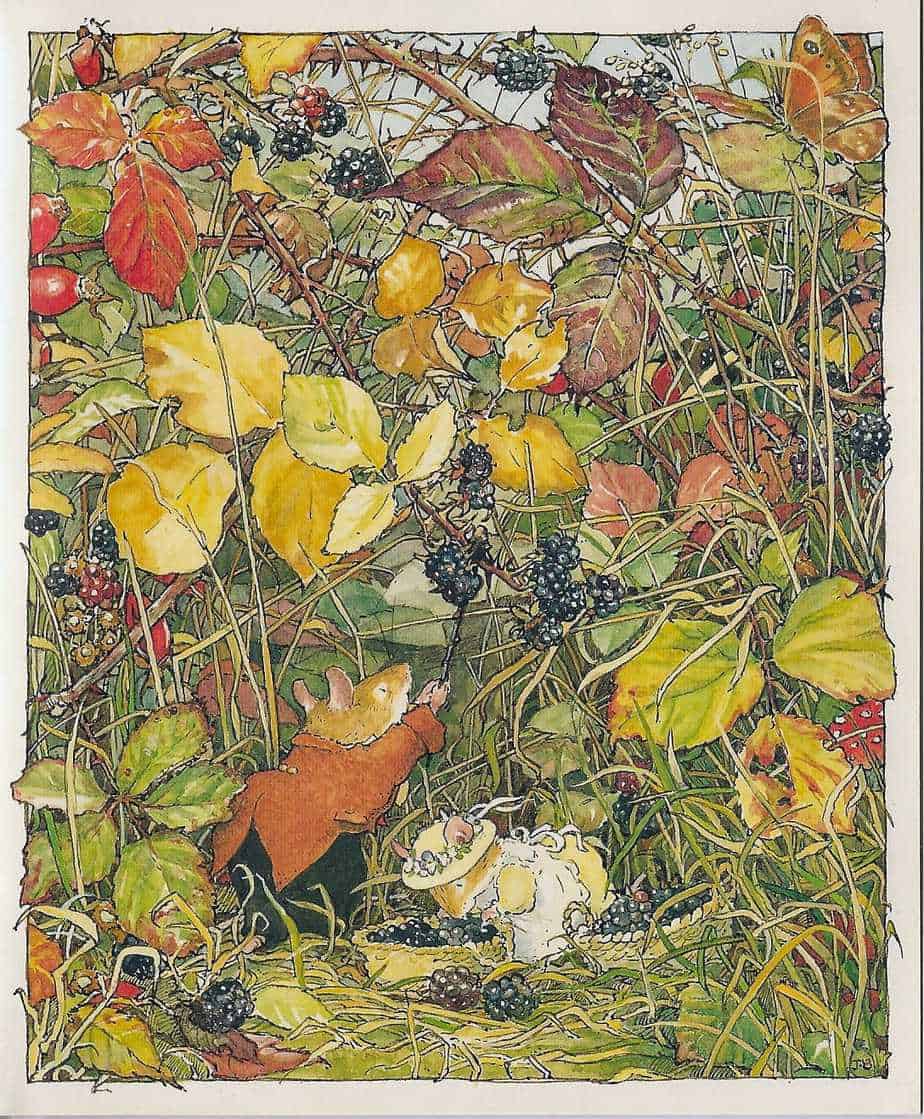
Blackberries are sweet and delicious but also an invasive weed. See “Heart Songs” by Annie Proulx for an example of the blackberry in action. In another short story, “Blackberries” by Thomas Kenneally, a middle-aged man falls in love/lust with a Black high school student and problematically compares her to a blackberry. For him, she is both tempting and dangerous.
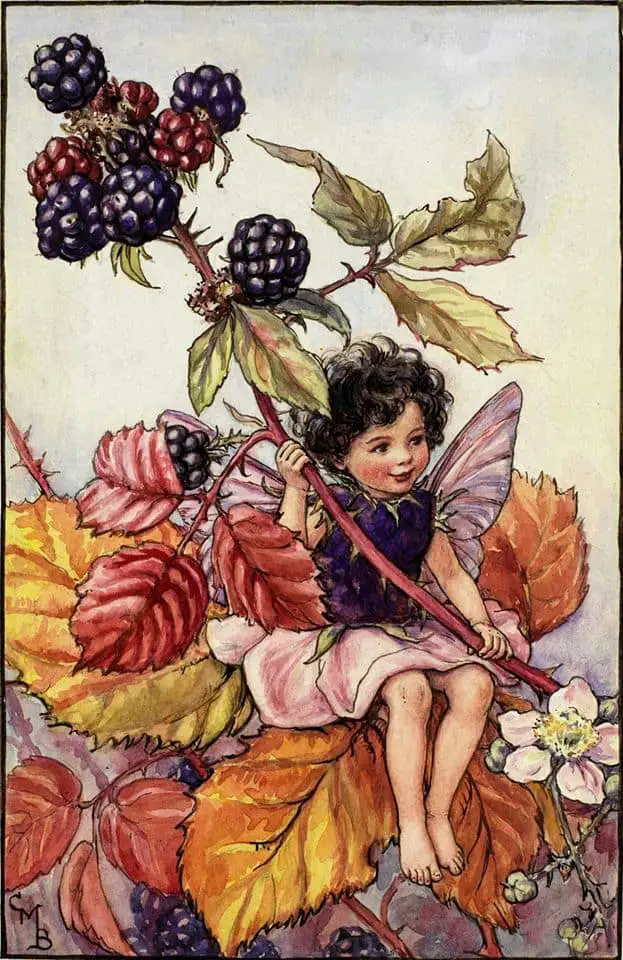
BLOOD
Sanguis: Blood is life-giving but can also be congested and unhealthy.
Cruor: About gore, but it was heroic and health-bringing alongside criminal and polluting.
BLUEBERRIES
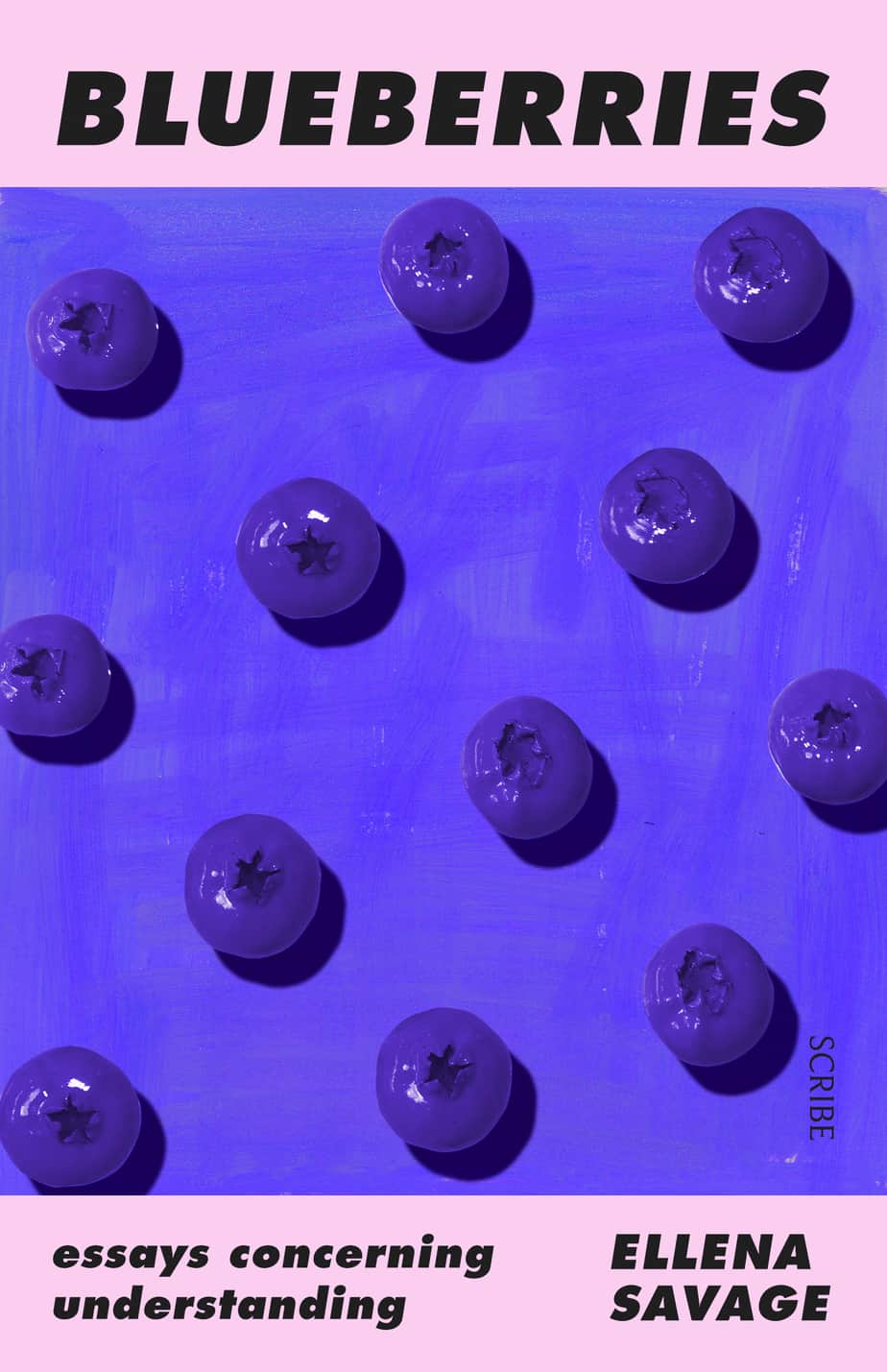
‘I mean who cares about opinions, gossip, whatever, when bodies are so vulnerable, in search only of love and breath.’
The body frequently escapes her, but is always very much present in these compellingly vivid, clear-eyed essays on an embodied self in flight through the world, from the brilliant young writer Ellena Savage.
In Portuguese police stations and Portland college campuses, in suburban Melbourne libraries and wintry Berlin apartments, Savage shows bodies in pain and in love, bodies at work and at rest.
She circles back to scenes of crimes or near-crimes, to lovers or near-lovers, to turn over the stones, reread the paperwork, check the deeds, approach from another angle altogether. These essays traverse cities and spaces, bodies and histories, moving through forms and modes to find a closer kind of truth. Blueberries is ripe with acid, promise, and sweetness.
BROOMSTICKS
Broomsticks are a symbol of female oppression (tied to the house and the drudgery of housework) but also, by leap of imagination, broomsticks turn into a vehicle by which to escape. Via witchcraft stories, women are given the literal freedom to fly.
CATS
Cats are gods to the Egyptians, but demoted to demons by the time of the medieval witch-craze.
HERBS AND DRUGS
The most famous herbs utilised by witches all lead double lives. Mandrake, henbane, monkshood, hemlock, thorn apple, deadly nightshade are hallucinogenic in small doses, deadly in large ones.
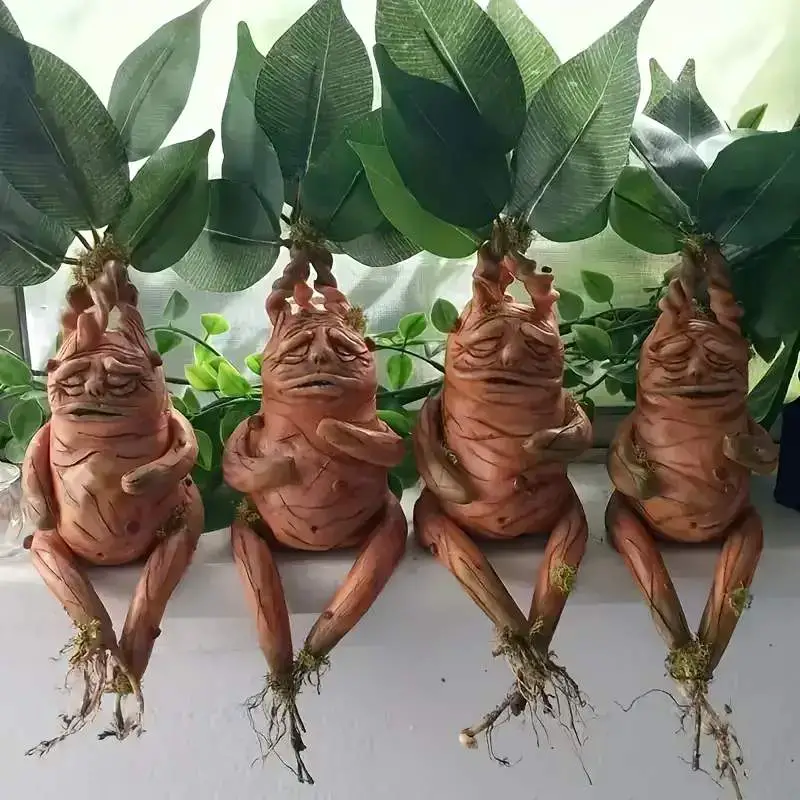
EDELWEISS
This paper about the Edelweiss explain in detail the history of its symbolism. Unfortunately, a benign, positive symbol can flip when something terrible happens to humanity. What started out as an alpine symbol, with associations of whiteness and inaccessibility. Unfortunately, this was a perfect symbol for the Nazi movement.
KNOWING
When there’s something different or weird about us, something shameful, we often wish to someone about it. But at the same time, we are asking them to accept something which we don’t necessarily accept in ourselves. The less we accept this part of ourselves, the more we need it to be known, by somebody. (Often our intimate partners.)
MOOCH
A mooch is someone who buys everything from scammers. Dupe is another noun for it. The interesting flip of this: being a good conman also makes you a really good mark. You’re always on the knowing side of things, and can’t imagine yourself on the dupe side. This gives you a lot of (false) confidence. This is explored in stories which end in the mooches getting duped e.g. Dirty, Rotten Scoundrels.
SECRECY
According to witchcraft, which is full of symbolic paradox, secrecy brings spiritual power, which is also why so little of its texts and methods exist today. (Plus because the witch craze, of course.) Secrecy decreases one’s power.
But secrecy can also increase any kind of power, whether that power is spiritual or destructive.
Keeping silent in certain circumstances, such as when a survivor, can cause severe damage. Yet as Daniel Dennett (the philosopher) has said, we must withhold the full extent of our desires from others to avoid exposing ourselves as wholly vulnerable, and therefore easily exploited.
SIRENS
Sirens are the terrifying winged creatures of Greek mythology, associated with sea disaster, and the Romanticism version — seductive women in and and around pleasant bodies of water such as baths and pools.
SPECTACLES
Spectacles carry a double meaning: in medieval painting, the rabbi at Jesus’ circumcision sometimes wears them, and Saint Anne, too, lays them down in the crease of her Bible. But the learned can be fools, as in Swift’s kingdom of Laputa, were the scholars all wear spectacles and see nothing. And fools, on the other hand, can be wise.
Marina Warner, From The Beast To The Blonde
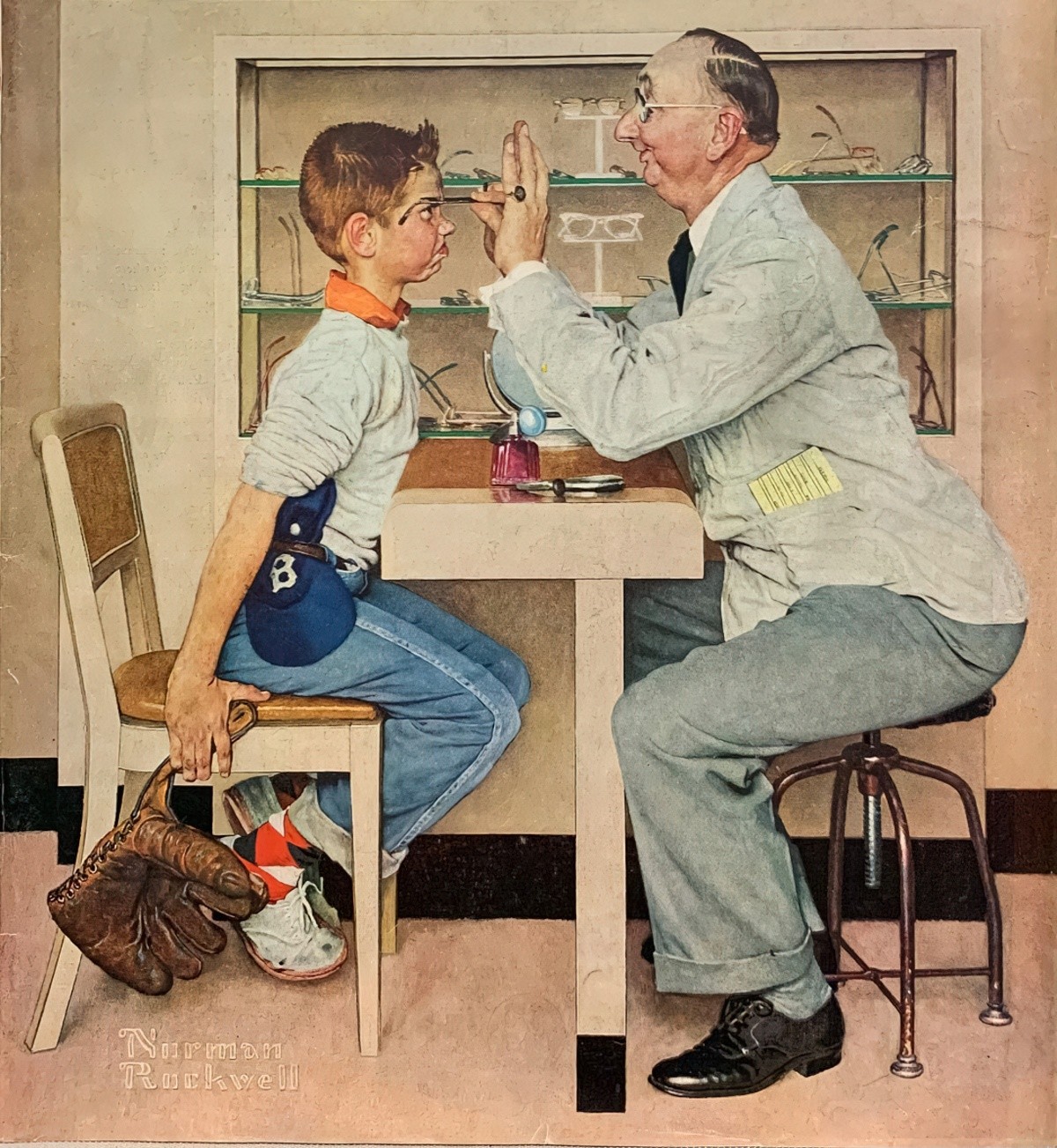
TRAP DOOR
A door opens new opportunities, but with a trap door in particular, those opportunities aren’t always great. A trap door can therefore function as a saviour or… a trap. I first considered this symbolic paradox in the following context:
In Trap Door (2017), Reina Gossett, Eric Stanley, and Joanna Burton wrote that many doors are currently opening for trans lives—visibility, recognition, citizenship—yet these doors are also traps that harbor a demand to suitably orient one toward capital and national priorities — productivity, wealth, accumulation—in exchange for belonging.
from a paper called Autistic Disruptions, Trans Temporalities
WITCHES’ HERBS
The most famous: mandrake, henbane, monkshood, hemlock, thorn apple, deadly nightshade all lead double lives — hallucinogenic in small doses, deadly in large ones.
YELLOW
Warm summers, happiness. But also old age See Annie Proulx’s short story “Bedrock” for an example of this double symbol in action. “The Yellow Wallpaper” is another example of sickliness, this time psychological.
FOR FURTHER INVESTIGATION
THE HANGING PARADOX
